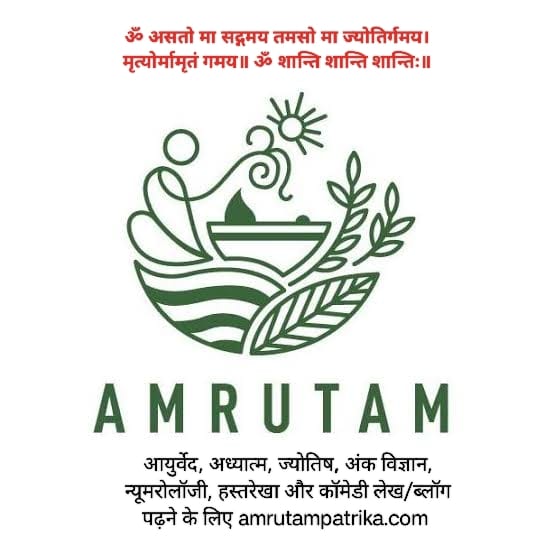What is Hepatitis?
Hepatitis is condition when the liver gets swollen and painful due to inflammation. The most common cause of Hepatitis is a viral infection. There are other reasons as well which can cause a chronic condition of the liver, like- medication, drugs, toxins and alcohol.
The liver in our body is located in the abdomen, on the upper right side. The functions which a liver performs in our body are:
#1 Aids in Digestion
Our liver produces bile, which helps in digestion of food. Bile is generally in liquid form, greenish or yellowish in color. It is stored in the gallbladder and it helps in digestion of lipids in the small intestine.
#2 Helps in filtering the Toxins
Our liver helps in detoxifying the blood, as the blood passes through the liver- it purifies it by breaking down the substances which are harmful for your health like alcohol, over the counter drugs and caffeine etc
#3 Activates essential enzymes
Our liver helps in activating certain essential enzymes (proteins) required for body functions.
#4 Smoothens the digestion process
Our liver also helps in breaking down of carbohydrates, fats and proteins and thereby, smoothening the digestion process.
Different kinds of Hepatitis
There are five different kinds of Hepatitis, which are known medicinally- Hepatitis A, Hepatitis B, Hepatitis C, Hepatitis D and Hepatitis E.
Hepatitis is basically a viral infection of the liver. Hepatitis A is generally considered to be a short term ailment and also, Hepatitis E is acute and short-term. However, Hepatitis E can be very harmful for pregnant women.
Hepatitis B, Hepatitis C and Hepatitis D have more chances of becoming chronic and long-term ailment for the liver.
A little more about the different kind of Hepatitis
Hepatitis A
Caused by Hepatitis A virus. It is most commonly transmitted by consuming food/water contaminated by feces of a person infected with Hepatitis A virus.
Hepatitis B
It is generally transmitted through fluids (Blood, semen, vaginal secretions). Having sexual intercourse with a partner infected by Hepatitis B can increase your risk to be infected by Hepatitis B.
Hepatitis C
Hepatitis C is generally transmitted through direct contact with infected body fluids. The most common way of transmission of HCV( Hepatitis C Virus) is through sexual contact.
Hepatitis D
Hepatitis D is a rare condition in India. According to a research study, less than HDV is recorded in less 10% of patients suffering through a liver condition. It is also known as Delta Hepatitis.
Hepatitis E
Hepatitis E is an infection borne in water.
“Hepatitis E is mainly found in areas with poor sanitation and typically results from ingesting fecal matter that contaminates the water supply.”
Common Symptoms of Hepatitis
- Loss of Energy (Fatigue)
(Take two spoonful of Amrutam Gold Malt twice a day everyday to boost your energy)
- Flu like symptoms
- Dark urine
- Pale stool
- Abdominal pain
- Loss of appetite
- Weight loss
Ayurveda & Hepatitis
Yakrit is the Sanskrit word for liver. According to ayurveda, most of the diseases associated with the liver are caused because of the imbalance in the Pitta dosha. If the liver is producing excess amounts of bile or if there is blockage in the flow of bile, the Pitta dosha is considered responsible which in turns affect the Agni or our digestive power.
In Ayurveda, the diseases related to liver are described as Kaamala. The different kinds of Kaamala’s are Shakhasrita, Koshta Shakhsrita,Kumbha Kamala and Haleemka.
Here are Five Amrutam Herbs which can help in the treatment of Hepatitis:
Amrutam Keyliv Malt is a Magic malt for prevention and cure for all types of liver disorder. Improves digestion and stops fatty enlargement of liver and cirrhosis of the liver. Helps in drug/alcohol induced hepatitis, viral hepatitis. Its key ingredients are Kutki, Bhringraj, Bhui Amla, Kalmegh, Guduchi and Trifla Ghansatva
#1 Kutki
Kutki is also known as Katuka. Its scientific name is Picrorhiza kurroa. It helps in detoxifying the blood and liver, it also helps in strengthening the liver by enhancing cellular growth and tissue regeneration. It is bitter in taste and has cooling, cleansing and anti-bacterial properties.
Kutki also helps in pacifying the Pitta dosha, nti-inflammatory agent, detoxifier, and antimicrobial powerhouse. It is very useful in treatment of diseases like Hepatitis and cirrhosis of the liver.
#2 Bhringaraj
Bhringaraj is generally known as the herb which can enhance your age and helps in rejuvenation. Its scientific name is Eclipta alba, it is also known as false daisy. It helps in improving the liver metabolism and promotes overall health of the liver.
Bhringaraj also helps in balancing the Kapha and Vata dosha. It is also good for the hair health and helps in purifying blood as well.
#3 Bhui Amla
Bhui Amla is a analgesic, digestive, carminative, laxative and hepatoprotective(protection of the liver). Decoction of Bhui Amla is used generally to treat liver related diseases like Hepatitis and Jaundice.
Bhui Amla also helps in the treatment of Diabetes.
#4 Kalmegh
Kalmegh is also known as Bhuinimba, Kirata and Andrographis. Its botanical name is Andrographis paniculata. It helps the liver in clearing away the toxins and also helps in regenerating the liver cells.
It is an anti-inflammatory, anti-bacterial, anti-viral and anti-parasitic herb which makes it an essential herb in the treatment of various infections.
#5 Guduchi
According to Ayurveda, Guduchi is one of the most valuable herbs. It is also known as Amrit. Its scientific name is Tinospora cordifolia. It is traditionally used to remove the accumulated pitta in our body.
Guduchi or Amrit works as a wonderful detox as well.
Amrutam Keyliv Malt is a Magic malt for prevention and cure for all types of liver disorder. Improves digestion and stops fatty enlargement of liver and cirrhosis of the liver. Helps in drug/alcohol induced hepatitis, viral hepatitis. Its key ingredients are Kutki, Bhringraj, Bhui Amla, Kalmegh, Guduchi and Trifla Ghansatva
Thank you for being an Amrutam Reader!
Email us with your queries at [email protected]
References:
https://www.ncbi.nlm.nih.gov/pmc/articles/PMC4491643/
https://www.ncbi.nlm.nih.gov/pubmed/8930565
[recent_products]




Leave a Reply